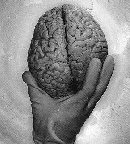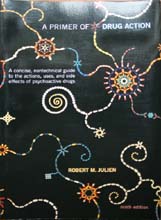Marshall McLuhan told us that every medium and every technology has a role in the extension and numbness of our organs. The mind’s extensions created by computer technology on the one hand expand our mental possibilities in terms of research, information, and knowledge processing, but on the other bring us to amputate or to numb some of the capacities of the same mind.
The computer can seem an extension of the mind’s capacities, but in reality it numbs our capacities to observe our minds from the inside, as self-consciousness, of our mental mechanisms, and of our whole body/mind systems.
At this point, my hypothesis is: If the computer is a way of outsourcing the mind’s functions, the mind itself could be considered as a “medium” which determines an extension and an anesthesia, in this case in relation to the original completeness of the soul. This is an application of McLuhan’s theories considering the knowledge that comes from the psychology of the ego.
[/en][it]
Sappiamo da Marshall McLuhan che ogni medium ed ogni tecnologia hanno un ruolo nell’estensione e nell’intorpidimento dei nostri organi. Le estensioni della mente create dalla tecnologia del computer se da una parte ci espandono le possibilità mentali in termini di ricerca ed elaborazione di informazioni e conoscenze, dall’altra parte ci portano ad amputare o intorpidire alcune capacità della stessa.
Le estensioni della mente create dalla tecnologia del computer se da una parte ci espandono le possibilità mentali in termini di ricerca ed elaborazione di informazioni e conoscenze, dall’altra parte ci portano ad amputare o intorpidire alcune capacità della stessa. Il computer, che può sembrare un’estensione delle capacità della mente, in realtà intorpidisce le capacità di osservazione della nostra mente dall’interno, intesa come consapevolezza di noi stessi, dei nostri meccanismi mentali e del nostro sistema globale corpo/mente.
A questo punto la mia ipotesi è che se il computer è un modo di esternalizzare le funzioni della mente, la mente stessa può essere considerata come un “medium” che determina una estensione e una anestesia, in questo caso in relazione alla completezza originaria dell’anima. Un’applicazione delle teorie di McLuhan considerando le conoscenze della psicologia dell’ego.
[/it]
Leggi tutto “The mind as a kind of media”





